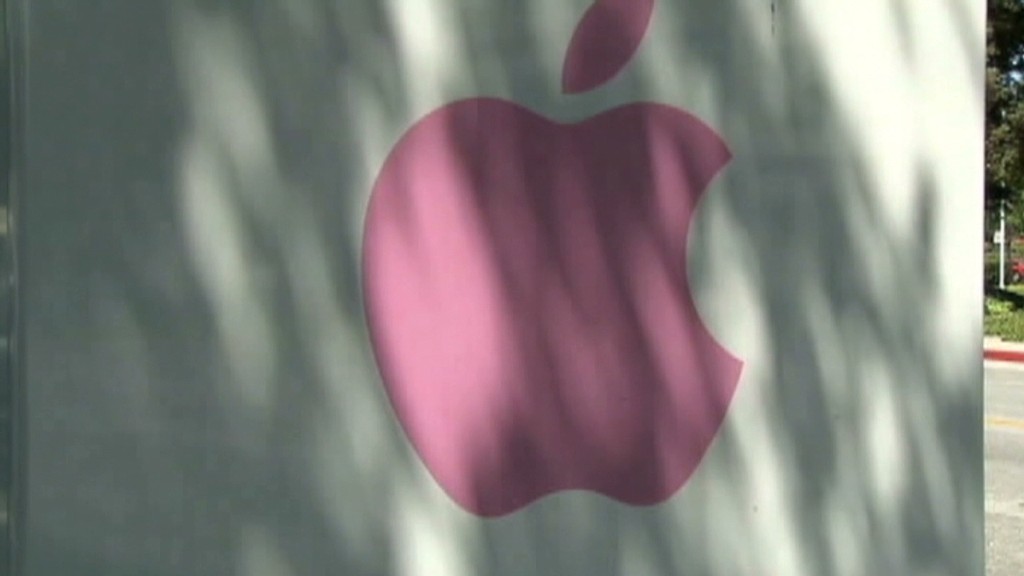
The historic patent battle between Apple and Samsung has come to an end, with the verdict largely favoring Apple -- and it's likely to ripple across the entire smartphone industry.
Apple and Samsung accused each other of infringing on software patents; Apple's allegations also included a few design patents.
A California jury on Friday found Samsung had infringed on the majority of the patents in question -- including software features like double-tap zooming and scrolling -- and recommended that Apple be awarded more than $1 billion in damages. On the design front, many Samsung devices were found to infringe on hardware style or icon setup.
Samsung is widely expected to appeal the ruling, but as it stands now, the verdict could significantly affect both smartphone users and other industry players.
What happens to my Samsung phone? Apple's (AAPL) design and software claims involved scores of Samsung devices, including the Nexus S 4G and S II.
As a result of the ruling, Apple could request an injunction against the Samsung devices that were found to have infringed on its patents. That means Samsung could be forced to take those gadgets off the market until they are changed.
If you already own the devices in question, though, don't worry: Even with an injunction, no one can pry the phone out of your hands. But it's possible that your phone could receive a software update that tweaks how it looks and works.
What about my Samsung Galaxy tablet? This category offered one spot of good news for Samsung: The jury ruled that Samsung's Galaxy Tab tablets did not infringe on Apple's design patents for the iPad.
What does the ruling mean for Google and Android? Samsung wasn't able to prove any of Apple's patents invalid, which is the major point that could affect other smartphone industry titans.
Armed with loads of significant patents now deemed valid in court, Apple could go on to sue other companies -- namely, Android maker Google (GOOG) and its hardware partners.
Samsung is the largest manufacturer of Android devices, and while the software does vary a bit across manufacturers, it's largely similar. So smartphone makers could be sued for similar software infringements, and Google may have to tweak Android's user interface.
Google's shares were down about 1% in after-hours trading late Friday, while Apple's stock jumped nearly 2% to a record high near $675.
Will we see any changes to future phone and tablet hardware? The verdict strengthened Apple's design identity, and competitors may now be afraid to even toe the line of the iDevices' "look and feel."
Chris Carani, an intellectual property attorney and design law expert at McAndrews, Held & Malloy, says the verdict could spark "a burst of creativity" in the design of future devices. Competitors won't want to risk being slapped with a design infringement lawsuit, given that it costs so much money to roll out a new smartphone or tablet.
"Competitors will have to go back to the drawing board, and give their designers more creative license," Carani says. "They'll have to create something very different as far as the visual experience, and that choice could be a great benefit for consumers."
What happens now? Does Samsung have to pay up? Before the verdict even came down, industry experts predicted that an appeal would be all but certain in this complex case.
Samsung alluded strongly to that point in a statement e-mailed to CNN after the verdict: "This is not the final word in this case or in battles being waged in courts and tribunals around the world, some of which have already rejected many of Apple's claims."
The statement continued: "It is unfortunate that patent law can be manipulated to give one company a monopoly over rectangles with rounded corners."
Apple, of course, was thrilled with the ruling: "The mountain of evidence presented during the trial showed that Samsung's copying went far deeper than even we knew."
Samsung has to be sorely disappointed, but it has enough cash to handle the $1 billion ruling with relative ease: It earned $12 billion last year and has $14 billion in cash in the bank.
If Samsung does choose to appeal, it's unclear what timeline that move will follow. The case involved 109 pages of instructions, a fact that made headlines, although in a surprise move, the jury came back with a verdict after only three days.

